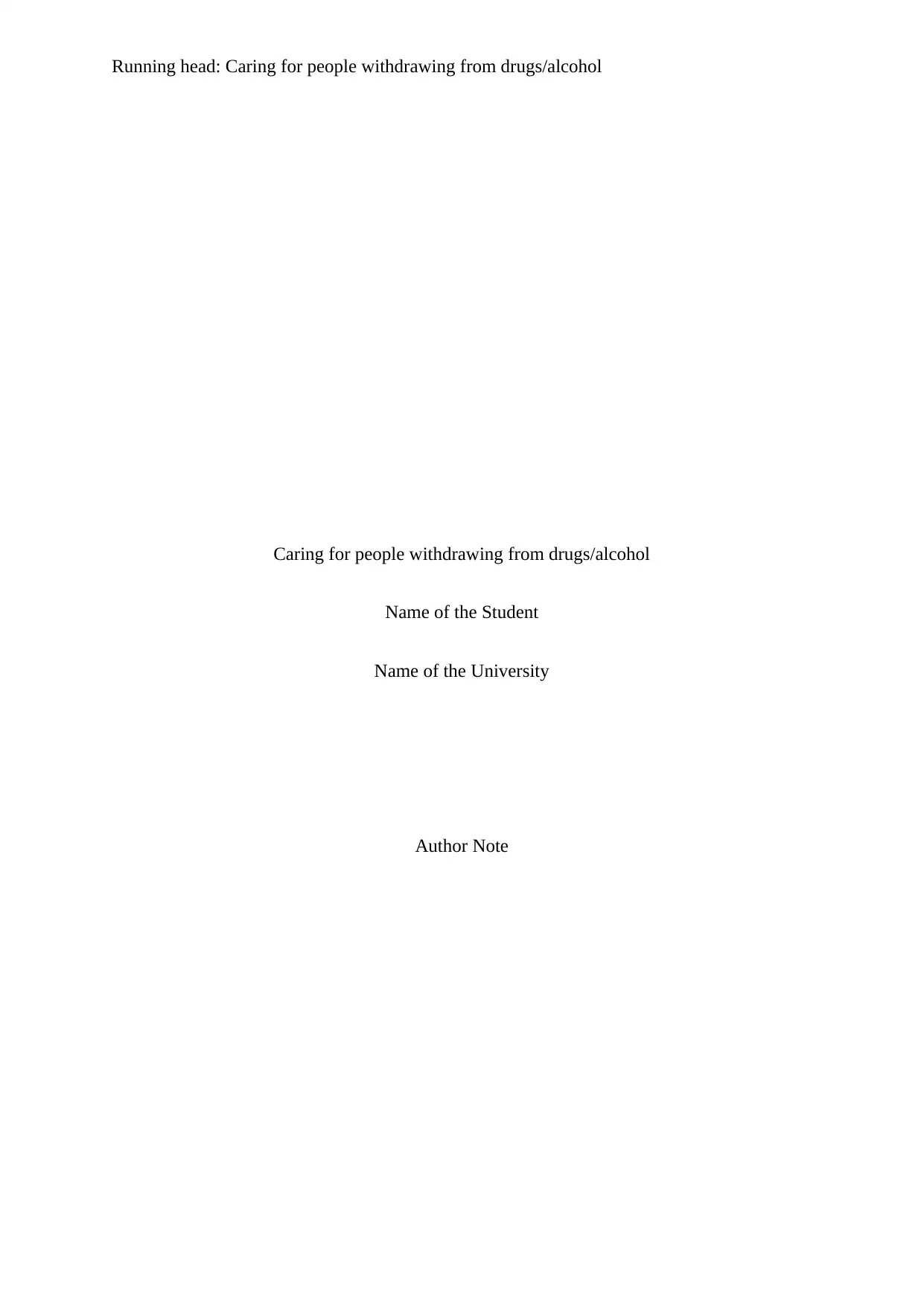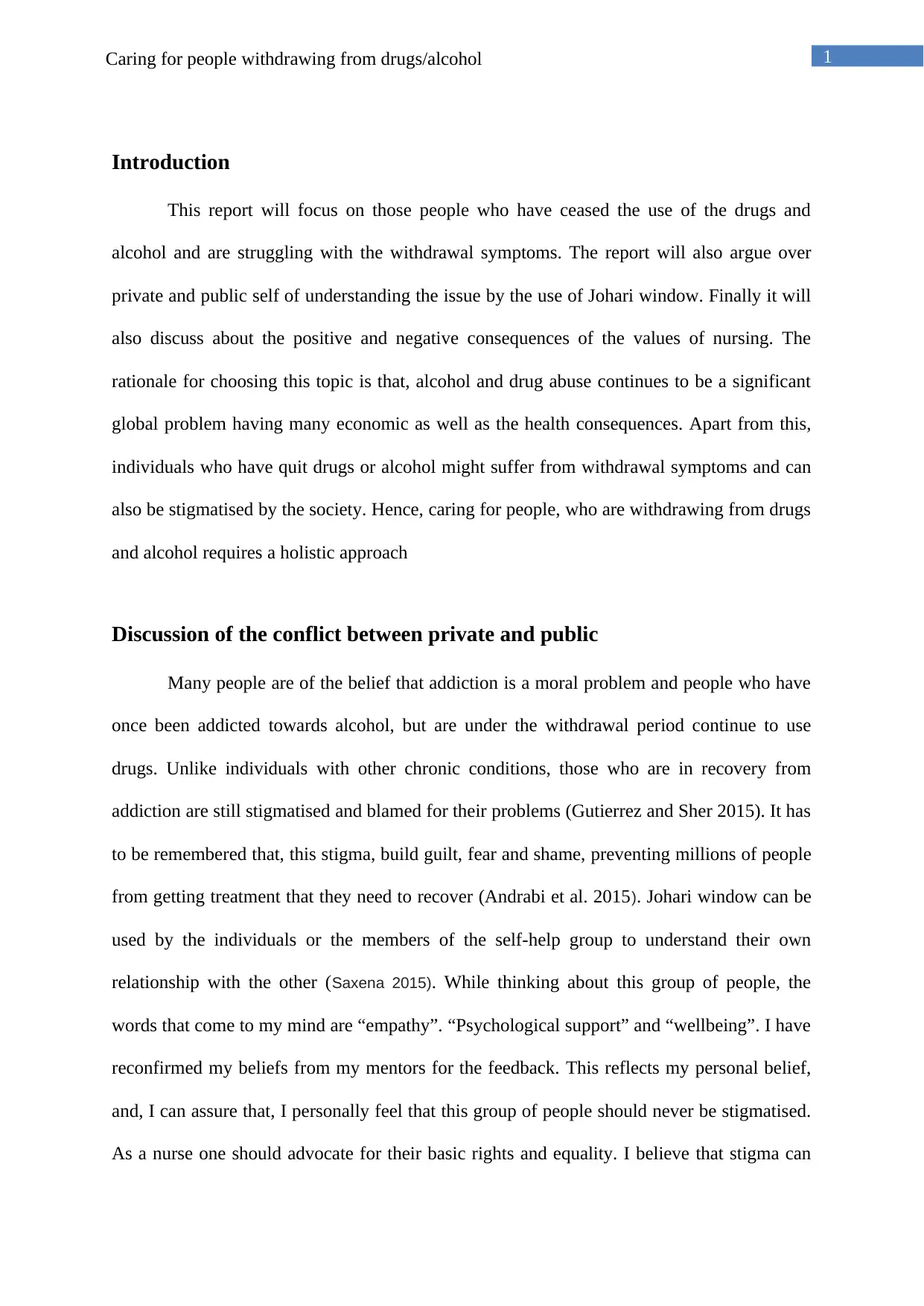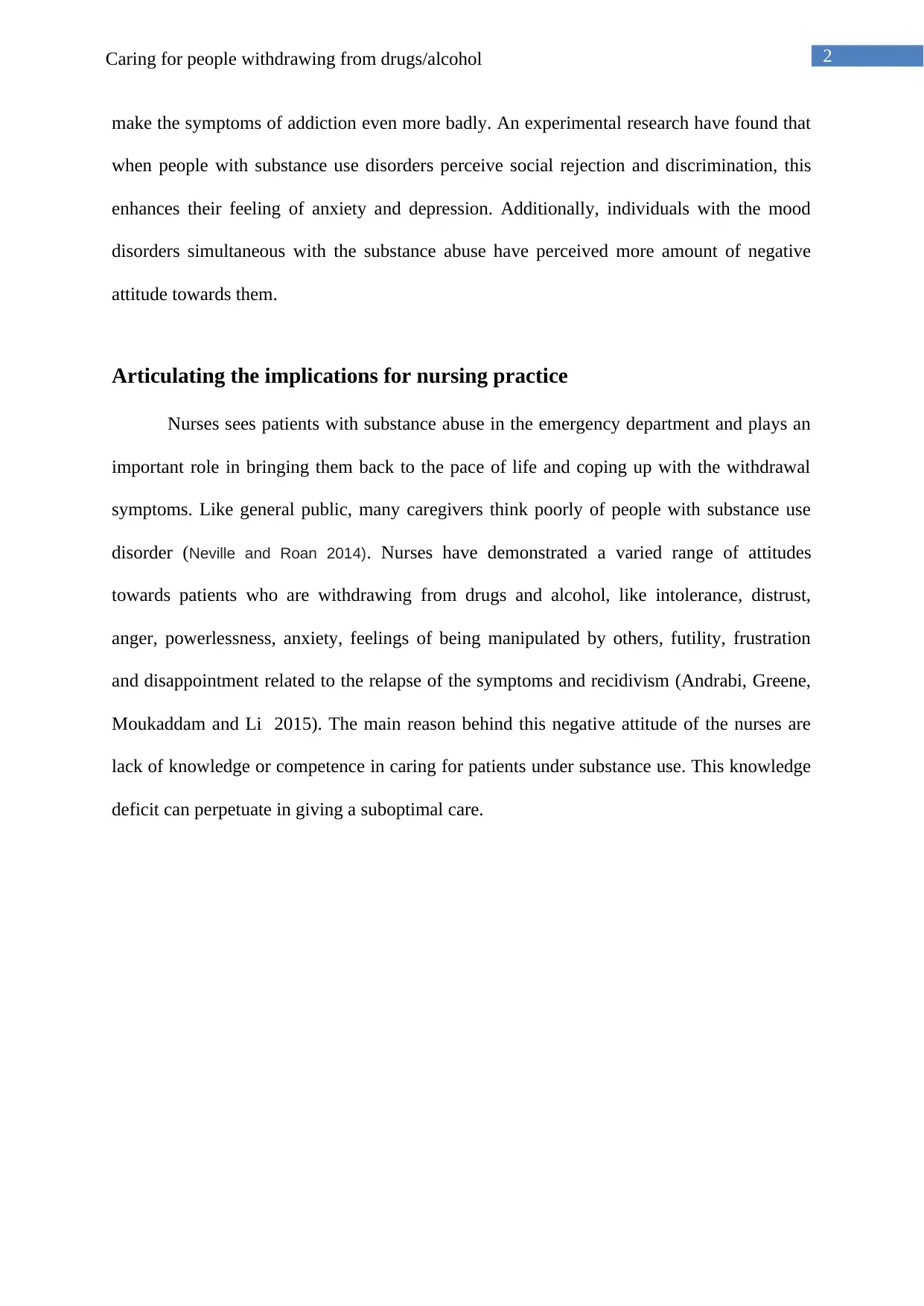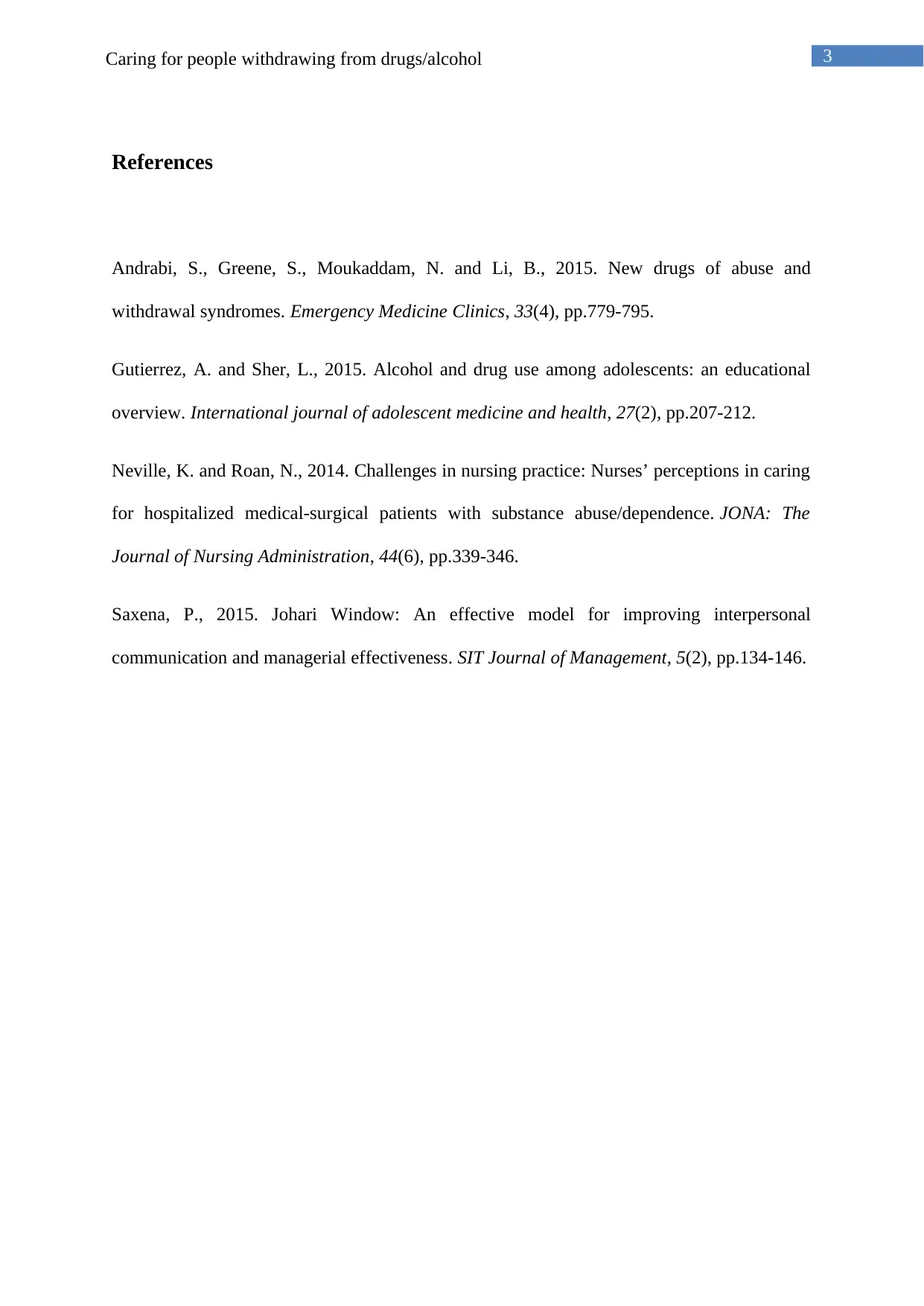Drug/Alcohol Withdrawal: Implications for Nursing Practice Essay
VerifiedAdded on 2022/10/11
|4
|757
|18
Essay
AI Summary
This essay focuses on caring for individuals experiencing withdrawal symptoms from drugs and alcohol. It explores the conflict between private and public values using the Johari window to understand self-awareness in this context. The rationale for choosing this topic stems from the significant global problem of substance abuse and the associated health and economic consequences. The essay highlights the stigma faced by individuals in recovery and the importance of empathy and psychological support. It further discusses the implications for nursing practice, including the varied attitudes of nurses towards patients with substance use disorders, such as intolerance and frustration, and the impact of knowledge deficits on patient care. The essay emphasizes the need for nurses to reflect on their values and beliefs to provide quality care and advocate for patient rights.
1 out of 4











![[object Object]](/_next/static/media/star-bottom.7253800d.svg)